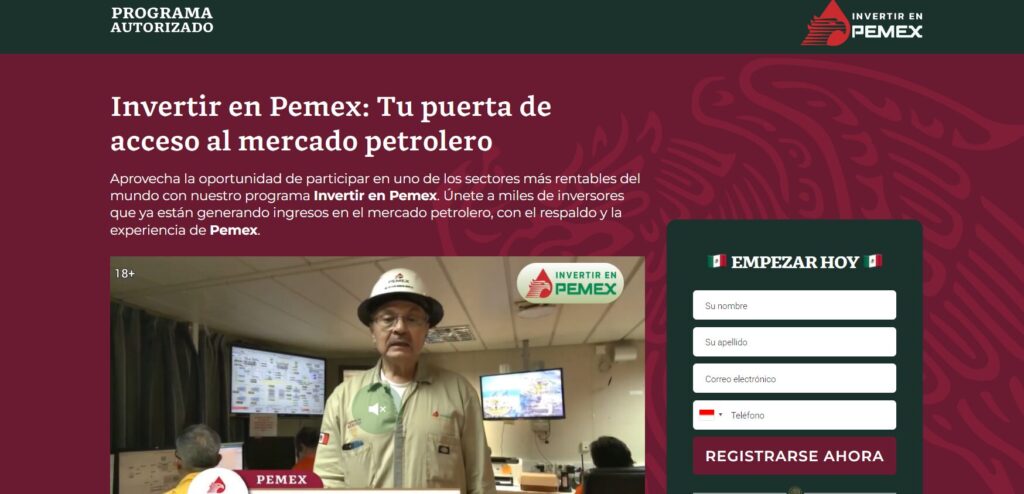How Pemex is Redefining Trading with Modern Technologies

The trading landscape is undergoing a profound transformation, driven by the rapid advancement of modern technologies. In this age of innovation, companies must adapt to remain competitive, and one organization leading the charge is Pemex, Mexico’s state-owned petroleum giant. Known primarily for its extensive involvement in the oil industry, Pemex is not merely responding to changes; it is proactively redefining trading by integrating cutting-edge technologies that enhance efficiency, transparency, and decision-making.
The relevance of Pemex technological approach extends beyond its immediate sector. As other industries look toward digitization and modernization, the lessons learned from Pemex strategies offer valuable insights on embracing technological change. From artificial intelligence (AI) to Big Data analytics and blockchain technology, Pemex innovations serve as a template for organizations striving to thrive in today’s complex trading environment.
In this article, we will explore the specific technologies employed by Pemex, illustrating how the company leverages them to navigate market challenges and seize opportunities. By examining the implications of these technologies for trading practices, we gain a clearer understanding of the future direction of the industry and the potential benefits for stakeholders.
Table of Contents
The Evolution of Trading Practices
The trading landscape has not always been characterized by the speed and efficiency we see today. Historical trading practices were often manual, deeply dependent on face-to-face negotiations and extensive paperwork. This traditional approach created significant inefficiencies, limiting traders’ ability to respond promptly to market dynamics. However, with the rise of digital technology and the internet, the industry began to shift.
Digital trading platforms emerged, allowing for real-time transactions and access to vast amounts of information. These changes laid the groundwork for a new, more agile trading environment. As we look at the evolution of trading practices, it becomes clear how modern technologies like artificial intelligence, Big Data analytics, and blockchain are not just enhancements but essential tools in reshaping the landscape.

Historical Context of Trading
For centuries, trading has primarily relied on interpersonal interactions and paper-based record-keeping. Traders were often confined to their local markets, responding to conditions that were sometimes significantly delayed due to communication lags. The introduction of telephone trading marked the beginning of a more instantaneous approach, but it wasn’t until the internet revolution that true transformation occurred. Online trading platforms have since enabled traders to operate globally, provide access to real-time information, and make informed decisions with unprecedented speed.
The Emergence of Modern Technologies
The landscape of trading has transformed dramatically due to the emergence of advanced technologies. Today, artificial intelligence, Big Data, and blockchain play critical roles in how trading practices are conducted. These technologies provide tools for enhanced analysis, security, and operational efficiency. Pemex, with its commitment to modernization, exemplifies how traditional industries can successfully leverage these innovative tools to redefine practices and set new standards in trading efficiency.
How Pemex is Leveraging Modern Technologies
Pemex embrace of modern technologies has been a game changer, allowing the company to stay ahead of the curve in an ever-competitive trading environment. The following sections explore how Pemex applies AI, blockchain, and Big Data analytics to enhance its trading operations and achieve notable success.
AI and Predictive Analysis in Trading
The integration of artificial intelligence has notably revolutionized Pemex trading strategies. By employing machine learning algorithms and predictive analysis, Pemex gathers and scrutinizes vast datasets, generating actionable insights that inform its trading decisions. This ability to analyze historical data alongside real-time information allows the company to optimize its trading strategies significantly.
Example : During periods of oil price volatility, Pemex utilizes AI to monitor global economic indicators, predicting potential price fluctuations. By understanding these patterns, this tools can make timely decisions related to buying and selling oil, maximizing its profit margins.
Blockchain Technology for Transparency
Blockchain technology represents another essential component of this tools modernization efforts. By employing this decentralized ledger system, Pemex enhances the transparency and security surrounding its trading transactions. The immutable nature of blockchain ensures that all transactions are permanently recorded and accessible to stakeholders, establishing a level of trust that is critical in today’s market.
Use Case : Pemex uses blockchain technology to track the journey of oil shipments, from production to delivery. This thorough monitoring reduces the risk of fraud and disputes between suppliers and buyers, allowing for smoother operations and stronger stakeholder relationships.
Big Data Analytics for Market Insights
In an age defined by data, Pemex use of Big Data analytics positions it as a forward-thinking player in the trading space. By analyzing vast quantities of market data, Pemex can derive valuable insights that enhance its operational strategies and market positioning.
Benefits :
- Enhanced Decision Making : Access to extensive market data allows Pemex to strategize effectively, adapting to changes swiftly.
- Risk Management : Big Data analytics equips Pemex with the tools necessary to identify potential risks and take proactive measures in times of market volatility.
The Benefits of Implementing Modern Technologies
The integration of modern technologies not only transforms trading practices but also brings an array of tangible benefits to Pemex. These advancements lead to improved efficiency, enhanced security, and ultimately, higher profitability.
Increased Efficiency and Speed
One of the most significant advantages of implementing modern technologies in trading is the drastic increase in efficiency. Automated systems help reduce the time taken for trade executions, minimizing human error and allowing traders to capitalize on opportunities quicker than ever before.
Improved Security and Reliability
The use of blockchain technology significantly bolsters security within Pemex trading operations. By providing verifiable and tamper-proof records of transactions, blockchain fosters a sense of trust among partners and clients, which is critical for maintaining long-term relationships.
Cost-Effectiveness
While the initial investment in these technologies may be substantial, they ultimately contribute to long-term cost savings. Automation decreases labor costs while sophisticated analytics help guide decision-making, leading to improved returns on investment.
Case Studies: Successful Implementation in Trading
Pemex and AI Integration
An instance of Pemex successful AI integration occurred during a period of significant market fluctuations. By leveraging advanced predictive analytics, Pemex was able to adjust its trading strategy, which resulted in reduced costs and an enhancement in profit margins.
Blockchain Implementation Success
Pemex pilot projects utilizing blockchain technology for transaction management demonstrated substantial success. Improved transparency in oil shipments not only streamlined operations but also reduced discrepancies, showcasing the efficacy of blockchain technology as part of its trading framework.
Challenges in Technology Adoption
While the advantages of modern technologies are clear, Pemex faces challenges in adopting these innovations.
Resistance to Change
Internal resistance can be a substantial barrier when implementing new technologies, particularly from employees accustomed to traditional practices. Strategies to overcome this resistance must include robust training programs and a culture that embraces continuous improvement.
Data Privacy Concerns
With the increasing reliance on AI and Big Data comes the growing concern over data privacy. Ensuring compliance with data protection regulations while fostering innovation will be crucial for Pemex to maintain its stakeholders’ trust.
Conclusion
Pemex’s innovative use of modern technologies is redefining the trading landscape, setting a benchmark for other organizations aiming to thrive in this digital age. By embracing AI, blockchain, and Big Data analytics, pemexid.online is enhancing efficiency, transparency, and decision-making within its trading practices.
As the trading environment continues to evolve, the company’s approach serves as an important case study for businesses across sectors. The experiences and lessons drawn from pemexid.online journey emphasize the imperative for companies to adopt technological advancements and prepare for an increasingly complex marketplace.







